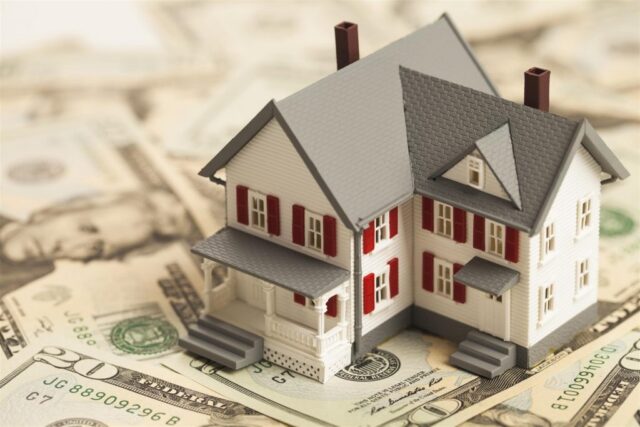
In the recent past, there has been a lot of buzz about home equity. Before we can even talk more about it, what exactly is home equity. In the simplest of definitions, it is the value of your home that you own. If you bought your home through a mortgage, the equity of the home is the difference between the value of the house and what you owe the lender.
Assume your house is valued at $350,000. Assume also that you owe the mortgage firm $120,000. Your home equity is the difference between the two, which is $130,000. Home equity is possible because the property appreciates over time. It takes significant market or property distress to cause depreciation. So, you can rest assured that every equity gain will most likely remain. The equity of the house would be the appraised value of the property if you bought the property in cash. Appraisal value could be different from the amount paid for a property.
Let us talk about those things that people rarely know about home equity.
You can increase home equity

When you buy a house, you expect the value of the home to appreciate over time. Sometimes it is not appreciated, especially when there is a property crisis, economic slowdown, or any other unwanted problem. For example, the COVID-19 pandemic is causing many houses to stagnate in their values due to the global economic downturn. It could be a good time to find a value buy that will gain once the pandemic eases.
Even when there is a challenge, you can still improve the value of the house. Like a car, whose value depends on its condition, your home can retain or improve value if you have given it the necessary boost. For example, you cannot allow the curbs to rot and expect the house price to stay intact. If you neglect your house, you have to be ready to give up a significant part of your equity. Some of the things you need to check are roofing, landscaping, and flooring. Water and pest damages can hurt your equity.
The equity is not stable
As you may have noticed, every home valuation will always come with a different price. Sometimes houses sell below or above their equity value. If you have recently redone the curbs, you might fetch a considerable benefit for your house. This URL explains how simple tasks such as professional tree services can change your home equity. Assuming that you have trees hanging dangerously near the house, any appraiser will always factor in such trees as risks. Your logged value will be lower than what you expect.
Home equity fluctuates based on several factors. If you live in an area that has recently been affected by natural disasters, such as floods and storms, you will certainly see a dip in the overall equity. The value of equity will also be affected by the economy and economic policies, such as changes in interest rates.
You can use it to get a loan

Home equity is part of your net worth. Considering that it is an asset, you can use it to acquire a loan for it. Some people are quick to take loans against home equity to their advantage. Unless it is necessary, you should not misuse your home equity to take unnecessary loans. However, you can use it to your benefit, especially when there is something important you want to do.
If you are a professional investor, you can take advantage of surges in home equity to take an investment loan to grow your portfolio. If you buy a house at $250,000 and its equity grows to $350,000 over some time, you can take a $150,000 loan against the property to invest in another project. However, you must be careful since a plunge in property values could leave you with negative equity.
Tax incentive
Loans extended on the home equity have tax-deductible mortgages. The idea is that the current property is part of a mortgage arrangement and, therefore, still tax-deductible. While this could be a good or bad thing, it exposes the person to a cycle of debt. Unlike mortgages, a home equity line of credit (HELOCs) can be used the same way you would use a credit card. They are flexible to use coming with the same mortgage rate, but with much smaller closing costs. If you keep your account in good standing, a HELOC is usually not amortized, making it even more attractive as a line of credit.
It can be negative

If you have bought a house for $1 million and a recession set on wiping the value of the house by 10%, you will have slid into the negative by $100,000. If you are paying the house through a mortgage, you will still owe the lender $1 million for a product that is worth $900,000. Your overall equity on the home will be -$100,000. In such a scenario, you will be paying for a value that you do not yet own. Such negative home equity can easily plunge you to making hasty decisions. However, you should not focus so much on it. After all, your home utility will prove much worthwhile in the long run.
Another type of negative equity comes from years of negatively accumulating interest on loans such as Neg-am loans, and reverse mortgages. these types of loans were designed for seniors age 62 and older to tap into their homes equity and accrue interest rather than making structured monthly mortgage payments. If you are interested in learning more about this type of mortgage check out the blog at ReverseMortgageReviews.
A great way to invest
Some value investors look at home equity as the investment option. Instead of waiting for the market to get better, they buy when the market is lowest with the home that any surge inequity will bring a good investment. Some analysts argue that the market will always adjust prices. For example, an agent will look for potential price bumps in the home equity. The current prices will reflect this potential, making value investment very difficult. Wholesale buyers use value investments, which is why they usually offer lower than that of comparable properties
Making worthwhile investments in the home can be an easy way to improve the house’s equity value. For example, if you are doing value-based remodels, you will leap big on the equity side. You don’t have to spend a fortune to improve your valuation. Simple upgrades can change the way people look at your property. Some people choose to take loans against such equity to improve the fixtures and other functional aspects of the house.







